Tosh Berman's Blog, page 234
April 2, 2014
April 2, 2014 (Serge Gainsbourg)
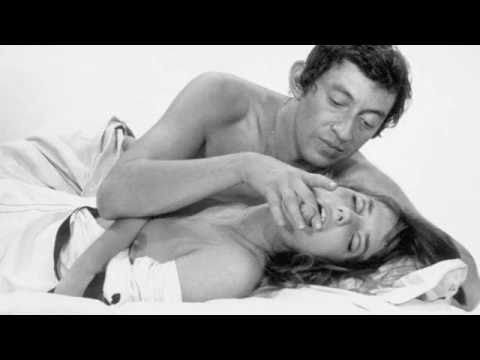
April 2, 2014
A tainted beauty entered my life about 20 years ago, when I discovered the works of Serge Gainsbourg. It seems that I waited for almost all of my life to listen to such genius, that I had to do more than just listen. I also had to read Serge Gainsbourg, and therefore I published his short novel “Evguenie Sokolov.” Then some years later I published the great Gilles Verlant biography “Gainsbourg, ” which gives a complete picture of the man and his world.
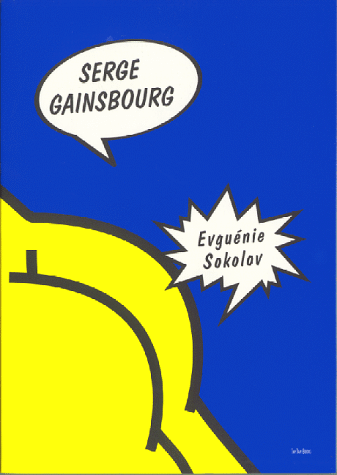
As most can gather by now, my life is not like a straight ahead narration, where A go to B, and then C comes along. No, the journey is just as important as the results of that trip. I knew Gainsbourg’s music here and there, but didn’t fully grasp his genius till much later. It was when I discovered the works of Boris Vian, that I became a Gainsbourg fanatic. As my press is very much devoted to the works of Vian, I researched as much as possible about his life and times - and the name Gainsbourg comes up a lot, due to the fact that Vian was one of the first professional people to give Serge notice for his music. Gainsbourg was a fan of Vian’s music, but not so much for his books, but nevertheless, he never forgot the good word Boris gave him, because it was Vian’s foot that kept that door open for him to succeed in the French music world.

My press TamTam Books is very tightly winded up with the Vian motif, in that everything comes from that source. But using Vian as a foundation, leads to a lot of stuff, due to the fact he worked on so many levels in French pop culture. Musician, composer, writer, playwright, A&R for a record label, engineer, translator, and socialite for the Saint Germain des-pres society. Right there is a great canvass, and Gainsbourg is one of the participants in that giant work of art.
The beauty of Gainsbourg’s work is that it consists of all the greats of the French aesthetic past - especially the literature of the 19th century, for instance Charles Baudelaire and Arthur Rimbaud, and matches it with the talents of Charles Trenet and bingo, that hybrid becomes Gainsbourg. Like his much younger fellow artist, David Bowie, Gainsbourg was hungry to find new influences, new sounds, and he was also a great explorer, but he used his knowledge of the past, and went forward with respect to his music making. His private life was full of scandals, and his taste in women was the connoisseur preference. Like a lot of narratives it wasn’t always a good story, but when you look at the immense picture of him, and what he did in his lifetime, with respect to the world it was and is, he was simply an amazing artist. Happy birthday Serge Gainsbourg, and long may we enjoy your work, as well as the down and the numerous up’s in your (one’s) life.
Published on April 02, 2014 10:34
April 1, 2014
April 1, 2014

April 1, 2014
What is it about nature that we trust so much into that world that is not of our making? I hanker back to the days of Edmond Rostand, who sees nature as an inspiration to adapt and change, but not to be governed by the four seasons. Emotionally speaking he was the most honest playwright of his time. When everyone else at the time was going through a naturalistic phrase, Rostand was going for the imagination. He based his play “Cyrano de Bergerac” on a real character, but alas, even his imagination doesn’t really hold up to the real Cyrano.

Since the play is in verse, it takes one away from everyday life into another world. After all this peculiar play introduced the word “panache.” The grand gesture of a theater piece with even grander characters within the work, can make one dizzy. The real Cyrano, besides being famous for having a large nose, even though that is very much over empathized in the play, was very much a dramatist as well as a duelist, which come to think of it, is a grand gesture in itself. He also wrote science fiction, where men go to the moon and meet up with the citizens of that fine planet. Like Rostand, he let his imagination take him to places that couldn’t be obtained then and not even now.
What is interesting to me is that here is a writer, Rostand, writing about another writer, Cyrano, and yet he’s a fictional character, but the fiction part is only in the narrative. The character is correct, but the key point is Cyrano’s nose, which sets off the only weak link in his personality. Nature would accept a natural physical mistake, but the artistic or aesthetic fellow or girl, must change that nature to make it work for them. Art to me does not want to acknowledge nature, but to change it for our purposes, whatever that may be.
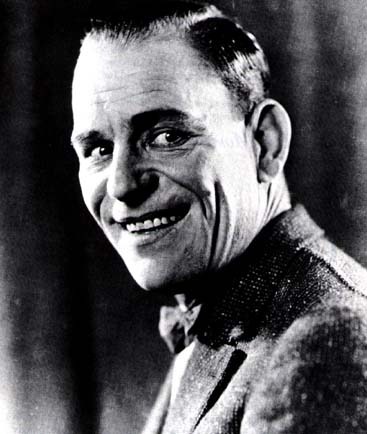
My one driving goal in life is to be a writer like Edgar Wallace, where I turn out one book after another, and sort of disappear in my own work. If Lon Chaney is the man with a thousand faces, then I want to the man with a thousand books, totally disguising the nature I live in, but presenting my life as a grand gesture. Therefore I’m seriously considering to add a middle-name to my full name. “Tosh Panache Berman. ”
Published on April 01, 2014 09:44
March 31, 2014
March 31, 2014
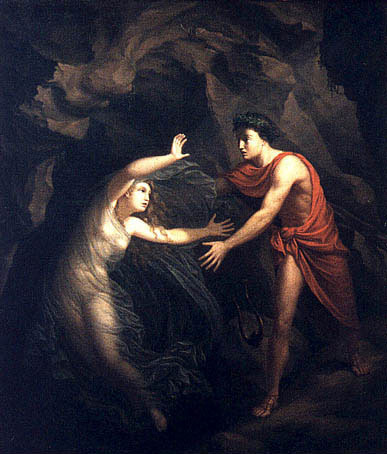
March 31, 2014
I woke up this morning with the recording of Glenn Gould’s version of Johan Sebastian Bach’s “Goldberg Variations.” I have the music hooked up to start automatically at 7:00 am every morning, which wakes me up. This is intended to be Gould’s final recording before he passed away, and I always prefer this version than his much earlier one. For me it represents an entire lifetime and it is in this specific recording. As I get older, I have less time for youth and all of its silliness. Often I want to walk around with a hammer and destroy every image of youth that comes upon my eyes. It is a type of psychotic reaction, but it greatly amuses me as well.

They say beauty is only skin deep, but with age, it becomes a connoisseur talent to choose the difference between the pearl and perhaps a coarse stone. Through out my life I always felt my profession was one where I show pearls before swine. Basically this is the job of the curator, and if one has to force a category on oneself, then that is what I am. I take all of you out for a stroll into the woods, and we come back with goodies that I selected for you. In other words, I am sort of the perfect date.
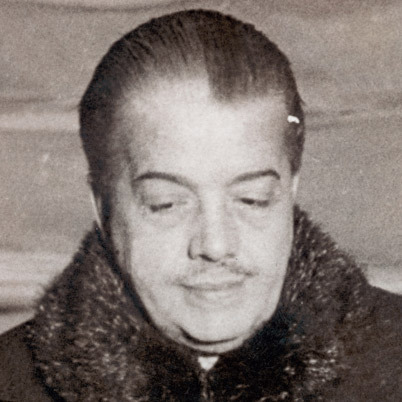
Sergei Diaghilev, was someone who I greatly admire, because he didn’t really do anything, except show taste. Through out his life, he has located the most unique pearls, and presented to an audience. Some hated it, some were transformed, but none were bored. To have vision is a beautiful talent, and sometimes artists cannot do that for themselves. What I do is recognize your talent and make you better. Or not.
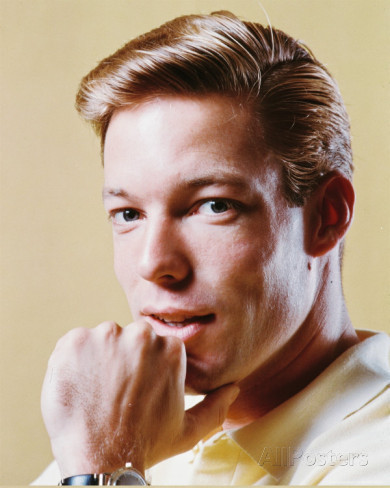
Richard Chamberlain, who started off as being an idol on the Dr. Kildare show, which also led him to a series of hit recordings around the early 1960s, became a serious stage actor when he went to London to perform in repertory theater. He’s an example of an artist who created his own career, where if you follow him from Dr. Kildare to teen idol music to Broadway and then eventually Shakespeare. It is obvious he had a strong vision of what he wanted to accomplish, and he did it with the genius of Napoleon planning an attack. It is like he couldn’t wait to do away with his youth.
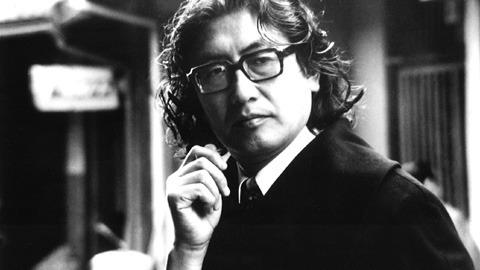
What I have gained from all of this is to always move forward, and not spend time looking backwards. I greatly admire the films of Nagisa Oshima, because it seems to me he distances himself from his past, to explore his culture in such a way, it is almost like he’s a scientist in a laboratory. All that knowledge one gains from one’s history and others has only one purpose. And that is to go forward and not look back. Orpheus, in mythology, was a figure who used his art to lead others to a better place. He even attempted to lure his wife Eurydice, from the Underworld. He succeeded in bringing her back from death to life. In a way, he was a curator, who transformed life as an on-going adventure. Youth is not aware of the pitfalls or has the vision to conceptualize the need to move on. Youth is looking back, and aging is moving forward.
Published on March 31, 2014 10:20
March 30, 2014
March 30, 2014
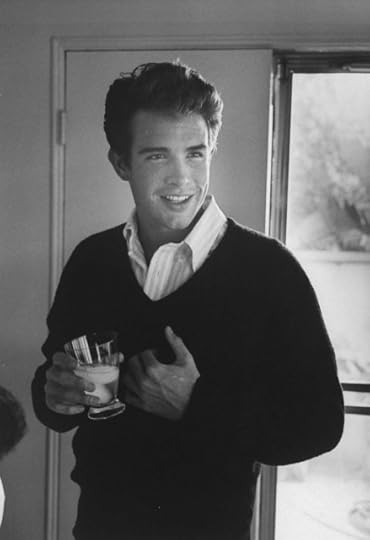
March 30, 2014
The most influential man in my life is without a doubt Warren Beatty. What I admire about him the most is his seductive powers over women, or just the need for sexual adventures at all cost. People poo-poo on him because I think he represents the real desire in a man’s make-up. We often have to deny it, or claim total innocence, but in truth, as Woody Allen once said, “if there is reincarnation, I’d like to come back as Warren Beatty’s fingertips. ”
To be able to step into a room and you’re Warren Beatty must be a fantastic feeling. I have two personal memories of Beatty. My earliest memory of him was when I was with my dad and mom and we were invited, or taken to Jack Nicholson’s house right around the time of the release of “Chinatown.” We drove up to the entrance of a long driveway, and waited for a limo to pick us up and take us up to the party. Once we were inside the car, we noticed a teenager on a mini-bike riding along us, and occasionally kicking the side of the limo as it was driving up the long driveway. May dad asked who was that, and the driver just hissed out “It’s Brando’s kid, Christian.” Once I walked in the entrance I was taken back by the interior which wasn’t that exciting to me, but what was amazing was seeing Warren Beatty and Julie Christie sitting on the floor, among others. Even the appearance of Groucho Marx couldn’t make me keep my eyes off Beatty. He was beautiful, but only on the surface, which made him even more attractive.
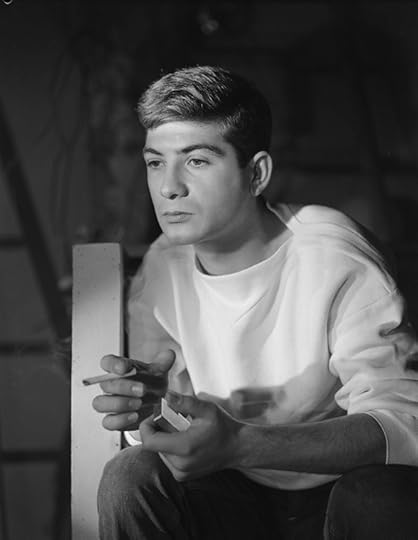
His charm is very studied, like he went to a class to study to be Warren Beatty. He didn’t have the inherent charm say, one of the great French stars at that time, Jean-Claude Brialy, who just oozed a certain type of personality that was totally suitable for his work with Godard, Malle, and Serge Gainsbourg. But Brialy was too soft as a seductive person for me, I needed a Beatty who was full of strength and a certain amount of daring. Being shy, I needed someone to follow who didn’t have one ounce of shyness or awkwardness in front of others, especially women.
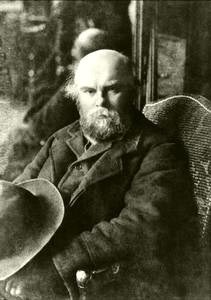
When I tried to be seductive, I come off as John Astin, who was one of the main stars in “The Addams Family.” Totally comical and just the wrong approach! I want seduction to be as easy as the song by Astrud Gilberto “The Girl from Ipanema.” The horrible truth is that my life more like an etching by Francisco Goya with maybe captions by Paul Verlaine. The disgust that I feel for myself whenever I am in front of an attractive woman is truly a horror show.
The second and last time I came upon Warren Beatty was many years later. I was employed in a bookstore and he came in by himself to shop, and I remember even though he was quite old, he still had an appearance of a little boy of sorts. A little boy with an erection! Nevertheless when he came into the store, there was an event taking place, and it was full of middle-aged women attending this specific event. When he came in, it was like if God walked into the room. The women literally swoon, and surrounded him like bees being attached to the honey. He was very courteous to the ladies, and it struck me that if I was in his place, I would look like a total idiot. Time marches on, but I am still the same as I was before, and so is Warren Beatty.
Published on March 30, 2014 12:22
March 29, 2014
March 29, 2014
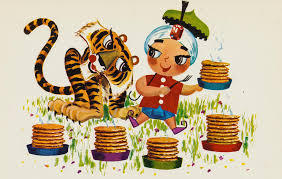
March 29, 2014
I had exactly two martinis and a glass of red wine last night when the earthquake hit Los Angeles. I didn’t feel a thing, but maybe it was the combination of my conversation with Richard as well as the waitress who seems to have the longest legs possible. It was not just her legs, but she also gave out a certain amount of charm as well. We were sitting at the smallest table possible, and yet, she was able to put the food and drinks we ordered in perfect spots. I asked her if she had trained as an interior decorator, and she told me that her apartment is really small.
When we arrived at my doorstep, Richard looked at his phone and told me that there was an earthquake that took place, and it was 5.something or else. Again, probably because I was a tad high, I didn’t feel it and neither did he. Or the waitress as far as I know. When I got to bed, I started to think about this waitress around when I was 19 or 20 years old. She worked at Sambo’s on Ventura Bouvelard and had the night duty. Meaning she was there from 10 PM to dawn. My friend Gary and I would go there around 11, in excuse to have coffee and some sort of desert, but the fact is I think we both wanted to see this waitress. She had bleached blonde hair, and wore bright red lipstick. She was very slim, and also, had long legs. The thing about Sambo’s, is the interior of the place was all in the color pink. Even the food served had a pink glow to it. In the middle of the night, it was a weird juxtaposition of truckers stopping by for food, due that the Ventura Freeway off-ramp was close by, and these heavy set masculine men in an environment that is basically pink.

She would joke naturally with the truckers, but was awkward with me and Gary. I remember feeling a little bit weird going there after a while, because my interest was for sure not in the pink interior, but in our waitress, who clearly had no interest in us or to be specific, me, at all. I have this distinct memory of having a break down of some sort while I was there one night. I can’t remember why or what caused this emotional melt-down. It may have something to do with a relationship that was going bad at that time. Nevertheless I remember excusing myself from the table, and needing to get to the bathroom. I didn’t even need to use the bathroom, but I just wanted to be alone for a few seconds. I began to cry, and I couldn’t stop crying. I never cried so hard in my life. It was like if someone unplugged a broken faucet within me and the water flowed out. As I was crying, I flushed the urinal and the water wouldn’t stop. Eventually it overflowed and the bathroom became flooded. I felt my emotional state was one with the plumbing here in the bathroom, and I was immediately ashamed and embarrassed at the same time. I went back to the table, and left some bills there and got into my car and drove off.

As my thoughts were bouncing around my head, and laying on my back in bed last night, I started to notice a crack in the ceiling that I don’t think was there since last night. I suddenly felt the sensation of water hitting my forehead. I didn’t move, or even react to it. I just accepted that fact, because water is truly a friend of mine.

Published on March 29, 2014 11:24
March 28, 2014
March 28, 2014
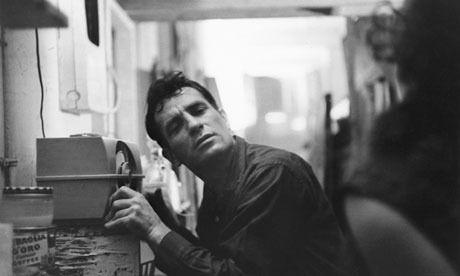
March 28, 2014
My not-so-distant relative the film producer Pandro S. Berman wanted to make a quick exploration film for MGM regarding the upcoming “Beat” scene that was happening at that time. He just finished the production work for the Elvis Presley starring “Jailhouse Rock” and was interested in doing a film where Elvis played a ‘beatnik poet. ' For research, Elvis actually went to City Lights bookstore to pick up on the vibe of the store as well as the local North Beach scene. He made an effort to get a job at City Lights as a book clerk, but that obviously wasn’t going to work out. There was also talk of Berman producing a film version of Jack Kerouac’s novel “On The Road, ” with Elvis playing “Dean Moriarty” and British actor Dirk Bogarde playing Salvatore “Sal” Paradise, the novel’s narrator.
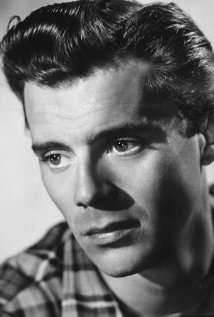
Bogarde flew out of London to meet Elvis in San Francisco. At the time Elvis never drank, but still, he met Dirk at the bar Vesuvio, that was practically next door to City Lights. Dirk just wanted to talk to Elvis personally without any managers around or studio people. He had very little knowledge of the beats, and basically his understanding of that scene, for him, came from his knowledge regarding the Teddy Boys. He knew and heard of the existentialist scene in Paris that was occurring at the time, but the beats were a totally foreign concept to him. But he desperately wanted to make changes to his image from teen idol to a serious actor. There was a darker side to Bogarde, and he felt he needed to express that side more. But wasn’t sure how, and on top of that he was getting frustrated with the studios back in the U.K. He felt that this could be the role for him to change everything. Also he had a great admiration for Elvis. He didn’t really understand the music, or that type of culture, but he saw something that was sincere and raw in Elvis’ approach to music and image.
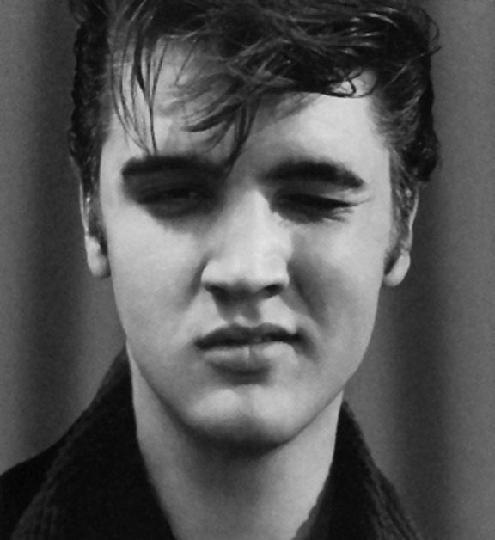
Elvis was a truck driver before singer, and he could identify with Dean with respect to his natural energy to go out and get going. Also in his mind, the name “Dean’ relates to his favorite actor James Dean. He was aware that his films were kind of lightweight, compared to the world of James Dean, and he wanted an ‘in’ as much as Dirk did. Bogarde ordered himself a Pabst Blue Ribbon beer, thinking it was very American type of thing to order in a San Francisco bar, and Elvis, being Elvis, ordered a bottle of Coke. They went together to City Lights and they each bought a copy of “On The Road, ” and looked and commented on each page of that novel over their beer and coke.
Sitting in the bar, in one of its small tables, Dirk was all of sudden taken back by him being there with the actual iconic Elvis, discussing what they both felt was an iconic novel that surely can be a film vehicle for the both of them. With the help of Berman, they couldn’t possibly imagine this to be a failure. Nevertheless, history has a way of by-passing moments like these for something that eventually will not be important. And who knew at this point and time, that Dirk Bogarde would enter a second chance in the Briitsh film world as one of its most amazing actors.
Published on March 28, 2014 10:18
March 27, 2014
"Goodis: A Life In Black and White" by PhiIippe Garnier (Black Pool Productions)

I have known about this book, "Goodis - A Life in Black and White" for a long time now. In fact, there were slight plans to make this into a TamTam Books title, but it didn't happen because the stars were not lined up correctly at the time. Nevertheless it is now translated by its author, Philippe Garnier, and published by Black Pool Productions in a very handsome edition. Oh, and the book, by the way, is excellent. For those who don't know David Goodis' books and writings, he is perhaps the most underrated noir writer in existence. At least, in my neck of the woods. Everyone comments on Jim Thompson, but have a tendency to forget about Goodis, who I think is a superior writer. Garnier is the first person to track down David Goodis and his world. So in a sense this is a biography on Goodis, but alas, it is much more than that.
If this was a film, it would be a low-budget version of "Citizen Kane," where Garnier tracks down people who actually knew the legendary author. Like Kane, the more layers that come off the stories about Goodis, the less one knows of him. It seems he had a thing for black American women who were obese and super mean. In other words he wanted to be abused by these women, and that fact sort of comes through his novel writing. But it is hard to tell because it seems Goodis was exceptional with respect to his ability to compartmentalize his life. One gets the impression that there isn't one person he knew actually had the whole story of his life. In other words, the more one looks, the less you know.
"Goodis: A Life in Black and White" works on different levels. It is about a writer tracking down another writer, and doing the hard part of the job, which is going after leads that sometimes lead to nowhere. But one of the many things that are interesting about this book are the interviews with people who knew Goodis. They pretty much say all the same, especially the people who were close to him, but even that, he comes off more vague than a real human being. We know he's a practical joker, that he had a weird dress sense, and went out of his way to drive probably the worst automobile possible at the time. So it does seem to me that he worked towards himself to have an identity of some sort - but even that, some people have a hard time remembering him. He strikes me as a spirit who had the talent to disappear and re-appear at will. No doubt Goodis was an odd character.
Garnier being french, is quite critical of his fellow critics of the french film writing world, who like to make out Goodis a a man of great tragedy, but according to Garnier, he had money and wasn't that much of a depressive noir type of character. But on the other hand, what type of guy was he? The book is about that, but it is also about the journey to find out the facts and separating it from the myth. Also one gets a clear idea about the Hollywood studio system and its relationship with writers - as well as the pulp publishing trade. All of it is super interesting in this great book.
Also please note that I will be appearing with the author Philippe Garnier at Stories Books and Cafe in Echo Park on March 29, 2014 at 6:00 pm. We'll be having a little chat about his book and on the life of the always fascinating David Goodis.
Published on March 27, 2014 15:53
March 27, 2014
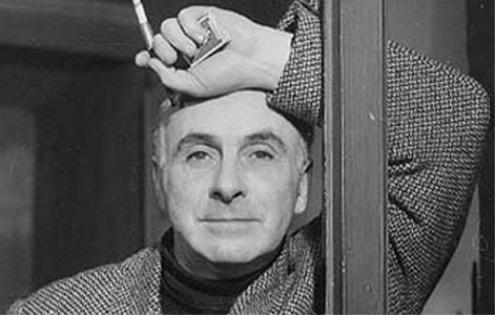
March 27, 2014
While I was wandering around my favorite used book shop, Alias East on Glendale Bouvelard, I found a copy of Francis Ponge’s “Soap, ” which is a poetic approach to that wonderful compound of natural oils mixed with sodium hydroxide. I wanted to be exposed to the everyday object, that one normally uses, but never thinks about. Not only is the natural world cut off from us, but also the artificial world of sorts. It gets to a point where we don’t know the difference between the two worlds. The only other poet that comes to mind is Frank O’Hara, with respect to his writing noting specific objects and colors in his life. Writing is reporting, and poetry goes into the prose and makes certain objects stand out from the rest. It is just like a surgeon opening a body and seeing all the muscles and tissues laying in front of their eyes, yet focusing on removing that bothersome tumor. To write with a pen, or by a surgeon’s knife, both goes into the world and take out what’s essential to the poet or doctor.

One of my all-time favorite actresses is Hideko Takamine, who starred in numerous films by Mikio Naruse, which my favorite is "When a Woman Ascends the Stairs." Made in 1960, but could have been made anytime in the 20th century. She plays "Keiko' a young widow, who wants to be able to open up her own bar in the Ginza district of Tokyo. The film is incredible because it analyzes the social world of Tokyo in such precise manner that it is both chilling and beautiful at the same time. In the end of the film she fails to purchase a bar, due to family issues, social issues, and the landscape of women just trying to exist in a world that is often harsh and unfair. After seeing the film, one recognizes that culture is meant to explore and tear apart - and only an artist can do something like that.

There is the practical side of art and medicine where you need a clear head to explore a territory, and the ability to make that exploration is both a skill and a natural talent. The long-running Japanese comic strip Sazae-san is amazing because it is reported to show life of a typical family in post-war Japan. I bought a couple of collections while waiting for my flight back to Los Angeles at the Narita Airport. I read them on the plane, and even though the strip is supposed to be humorous, I found it deeply touching in that as an outsider, I can see what daily life was like back then. It then struck me how important of a document that this comic strip is - because in an artistic manner, it tears into the culture, and brings out what is important, but done in a way that is almost Robert Bresson like, with respect to his classic film works.
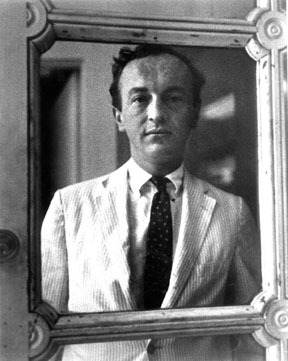
It is with these thoughts, that makes me pick up my pen and notebook to expose a world within my world for my readers.
Published on March 27, 2014 10:40
March 26, 2014
My Favorite Film Books from 2000 (Contentville) by Tosh Berman
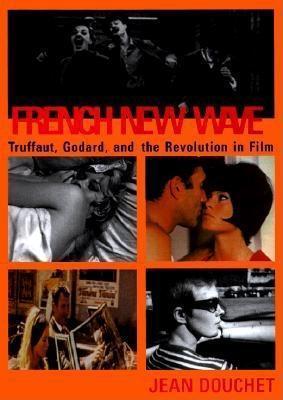
French New Wave, by Jean Douchet
When I die, I want to be buried with Jean Douchet's French New Wave. The fact that yours truly will one day be in a coffin means that I need a good (long) book to read and to look at -- and this is the book. It is a treat for both the eyes, with ravishing film stills and layout of text, and for the intellect, with penetrating thoughts on the importance of the French 'New Wave' in cinema history. This seductively well-illustrated book takes one back to when films were fresh and exciting. All the major heroes are here: Jean-Luc Godard, François Truffaut, and others. Included are the original reviews by the Cahiers du Cinéma group, plus the original film bills from the ever influential Cinémathéque Française: First they were critics, the first to look at the importance of cinema and the first to
value the films for their directors instead of their stars, studios, or box-office stature. Later, they made films -- cheap, inventive, and still fresh and beautiful as the first sunlight.
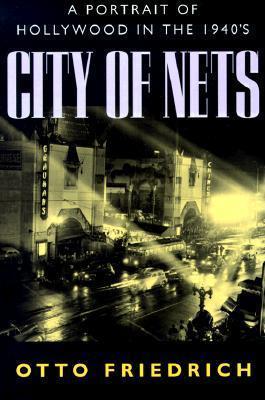
City of Nets, by Otto Friedrich
In the years between 1939 to 1949, Los Angeles was the cultural capital of the world, in part due to men like Hitler, who were discouraging certain types of artists from working in their version of a new Germany. So Hollywood became host to cultural German legends like Bertolt Brecht, Igor Stravinsky, Thomas and Heinrich Mann, Alfred Doblin, Arnold Schoenberg, Ernst Lubitsch, Fritz Lang, and Peter Lorre, among others. On the American side, we had Nathanael West, William Faulkner, F. Scott Fitzgerald, and others writing for the film factory. And for the conservative-minded studio heads, the one thing almost as bad as the Nazis were the Hollywood workers' unions. No problem though, when one had the HUAC to label the working stiffs as communists. In addition, there's Charlie Chaplin getting kicked out of the United States for political and sexual reasons, and Errol Flynn's infamous two-way mirrors in the walls and ceilings of his love pad. The result is a book that exposes Hollywood as a cultural landscape with a rather devilish personality.
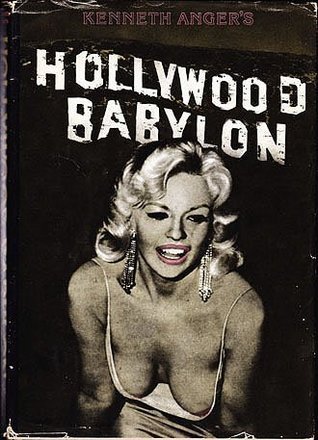
Kenneth Anger's Hollywood Babylon, by Kenneth Anger
It's not the stories themselves, but how Kenneth Anger tells the stories. On the surface this book is a diatribe against the Hollywood system, but underneath it is a love letter to the city and its famous citizens. One can
spend a lifetime proving or disproving the gossip, but what's the point? Anger (also a brilliant filmmaker) has written a beautiful book about Hollywood's real greatness: the sleaze, drugs, death, and sexual excess.
What's distinctive about Hollywood is the image, and Anger focuses fully on it. All the great gossip is here: Fatty Arbuckle's rape trial, Chaplin's affairs with (much) younger girls, Erich Von Strohiem's on-the-set staged
orgies, and so forth. In addition to the stories, Anger uses great photographs of the stars at their low points. This book exposes the soul of Hollywood in poetic terms
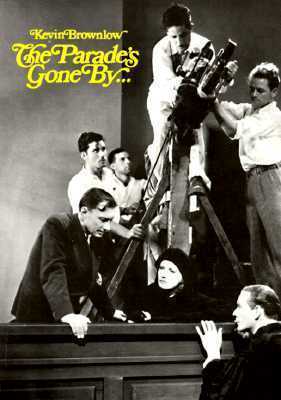
The Parade's Gone By, by Kevin Brownlow
The best history of the American silent-movie era. British film historian Brownlow interviewed not only the stars of these films, but their technicians, stuntmen, cameramen, and others who made silent films an art form when the cinema medium was still young. Brownlow spoke to many screen legends while they were still kicking, so one is able to hear the voices of Buster Keaton, Howard Hawks, Mary Pickford, Gloria Swanson, and King Vidor.
He was also wise in his choice to let many of the participants speak for themselves about their early cinematic experiences. An essential book for silent-film lovers, as well as those who are interested in the culture of
cinema production in the early twentieth century.
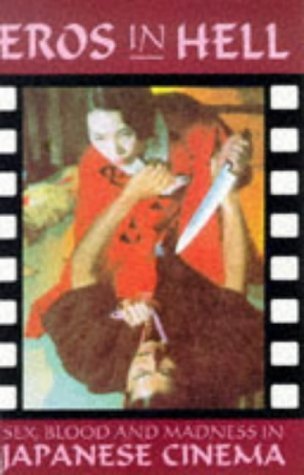
Eros in Hell, by Jack Hunter
What's cinema without sleaze? The history of film always had an element of sordidness, and the B-movie studios in Japan have produced their own bizarre quantity of off-the-wall cinema. Jack Hunter's Eros in Hell goes into the
murky world of mondo Japanese films and their filmmakers. Here we have interviews with filmmakers like Koji Wakamatsu (Go, Go, Second Time Virgin) and Takao Nakano (described here as the Ed Wood of Japan). There is also Seijun Suzuki (the Sam Fuller of Japan), Hisayasu Sato (mixture of porno and avant-garde leanings), and the legendary Nagisa Oshima (Merry Christmas, Mr Lawrence). Not only is this book jam-packed with information and fantastic still photos, but it also gives a general overview on what is and was happening in Japanese cinema besides the Kurosawa-Ozu filmmakers. An essential book on underground Japanese cinema and its culture.
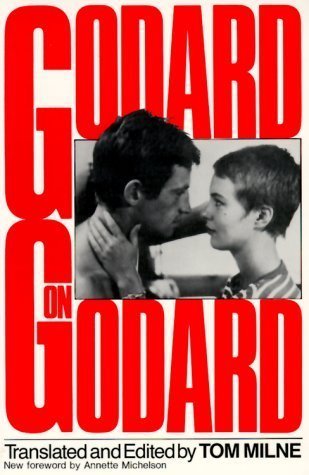
Godard on Godard: Critical Writings, by Jean-Luc Godard
Godard has always been a god to me. His films are frequently cited in essays about the nature and culture of the cinema. Godard began his career by writing about film for the French magazine Cahiers du Cinéma, and his style
of writing is very much fan-like in its exuberance, especially with respect to his appreciation of films that were not getting proper critical attention, such as the works of Nicholas Ray, Frank Tashlin, and Fritz Lang. It is somewhat like the writings of a punk-rock fan who wrote about his heroes and then decided to form his own accomplished band; Godard's writings led to his own classic films. So this book is not only an essential look at a filmmaker, but also at a man who loves films with all his heart.
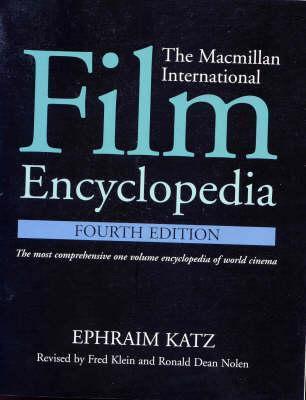
Film Encyclopedia, by Ephraim Katz
I have a testing method for encyclopedias. What I do is look up something totally cryptic, and if it's listed in the book, that's the one to get! Infilm encyclopedias, I always look up Lois Weber, an early female director
who started making films in 1912. Ephraim Katz's Film Encyclopedia not only has a nice mention of Weber but also Alice Guy-Blaché (another early filmmaker), my second obscure choice. Everyone is in this book, from Sacha Guitry (look him up if you don't know who he is) to Zsa Zsa Gabor to totally obscure actress Anne Jackson, who made three or four films, but is married to Eli Wallach. Who is she? Is this information important? Yes it is, because if you read this book from beginning to end you'll be the master of movie knowledge. Which could mean that you become the biggest bore on the block, or one who really appreciates a complete knowledge of world cinema.

Hitchcock by Truffaut, by Alfred Hitchcock and François Truffaut
The ultimate book on one filmmaker by another famous filmmaker. Okay, there aren't that many books by directors talking about their peers, although Paul Schrader's Transcendental Style in Film: Ozu, Bresson, Dreyer comes to mind. That is a rare and great example, but the Hitchcock book has to be the best example of a great filmmaker talking about his trade, the art of making movies. Truffaut goes one-on-one to nail all the important questions aboutHitchcock's work. In other words, its like sitting at a bar between two film giants in conversation. Truffaut reviews every detail obsessively, and Hitchcock, with great humor, discusses his entire career. This book is for both the fans and aspiring filmmakers seeking inspiration -- this book doesn't let anyone down.
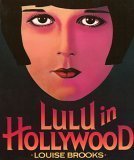
LuLu in Hollywood, by Louise Brooks
The late Louise Brooks was a stunning beauty who along with Marlene Dietrich and Greta Garbo was one of the great seducers on the silver screen. Not only did she invent the helmet bob haircut of the twenties, but she was also one of the best understated film essayists in cinema. Brooks refused to be compromised by the Hollywood system. She was eventually blacklisted and condemned to live her life in obscurity. From the shadows came Lulu in Hollywood, a book that touches on old Hollywood, Brooks's experiences working with German great Georg Wilhelm Pabst (Pandora's Box), and unusually positive insights into stars such as W.C. Fields and Humphrey Bogart. Her chapter on Marion Davies (an underrated comedy actress and mistress to William Randolph Hearst) is touching and gives Davies credit as a human being as well as an artist. Brooks is an icon that didn't disappoint. It's not a film library if it doesn't include Lulu in Hollywood.
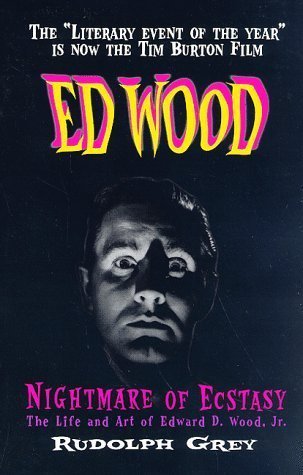
Nightmare of Ecstasy: The Life and Art of Edward D. Wood Jr., by Rudolph Grey
This oral history on the "Titan of Bad", Ed Wood, wonderfully captures the underbelly of Hollywood. It's all in here -- the dreams, the sweat, weird characters (shades of Nathanael West), the early porno industry, and cross-dressing galore. Ed Wood was a filmmaker, scriptwriter, pornographer, drunk, novelist (Death of a Transvestite is a must-read), and, according to this book, a decent guy. What is heartbreaking about his life is his ongoing struggle to make something against all odds, with a lack of money and, according to some, a lack of talent. But that doesn't matter in Hollywood. Nightmare of Ecstasy is essential for anyone who has an interest in making a film or wants to create anything important in their life.
Tosh Berman, 2000 for Contentville
Published on March 26, 2014 19:54
March 26, 2014

March 26, 2014
Right before I left Tokyo for Los Angeles, I saw a remarkable production of Tennessee Williams’ “In The Bar of a Tokyo Hotel, ” starring the J-Pop group AKB48. The band consists of 48 Japanese girls from the age of 15 to mid-20s. They have their own theater that is located in Akihabara, Tokyo. Doing a Tennessee Williams play is considered to be odd with respect to this group of young ladies performing it. On the other hand, they totally re-adopted it to their group as well as adding several songs to the production. The main singer for this performance, Mayu Watanabe, is twenty years old, yet had years of experience and she actually studied under the French musician and composer Pierre Boulez. He thought quite highly of the music she composed as a teenager. For some, her being a part of AKB48 strikes one as being subversive, but Watanabe is pretty much in the group as a singer and dancer.
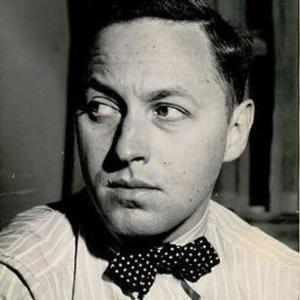
Since Williams passed away some years ago, we will never know what he would have thought of AKB48’s version of “In The Bar of a Tokyo Hotel.” But we do know that he had a great admiration for Japanese culture and its writers. He met and knew Yukio Mishima, and actually wrote the play "In The Bar of a Tokyo Hotel" as a tribute to Mishima's memory. The original production took place in Manhattan in 1969 and ran for 29 performances. Even though it was considered to be a commercial failure, there were some fans of the work, and some see it as a very personal statement from Tennessee regarding his life and career. The main character is a painter who is struggling with his art in trying to find a new medium to express it, while staying in a hotel in Tokyo. Of course it ends badly, and the play’s reputation is almost cult-like in its acceptance to a very few group of people.
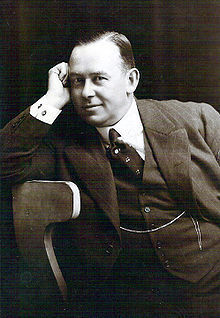
So what is amazing is that AKB48 did the initial Japanese production of this underrated work by Williams. Before I left Tokyo, I also purchased the soundtrack to this production which is spectacular on many levels. The great inventor of the British music hall, Fred Karno, who discovered Charlie Chaplin and Stan Laurel, would fit in perfectly with the AKB48 aesthetic, in that theater becomes the everyday life, but projected by visionaries.
Published on March 26, 2014 11:23



